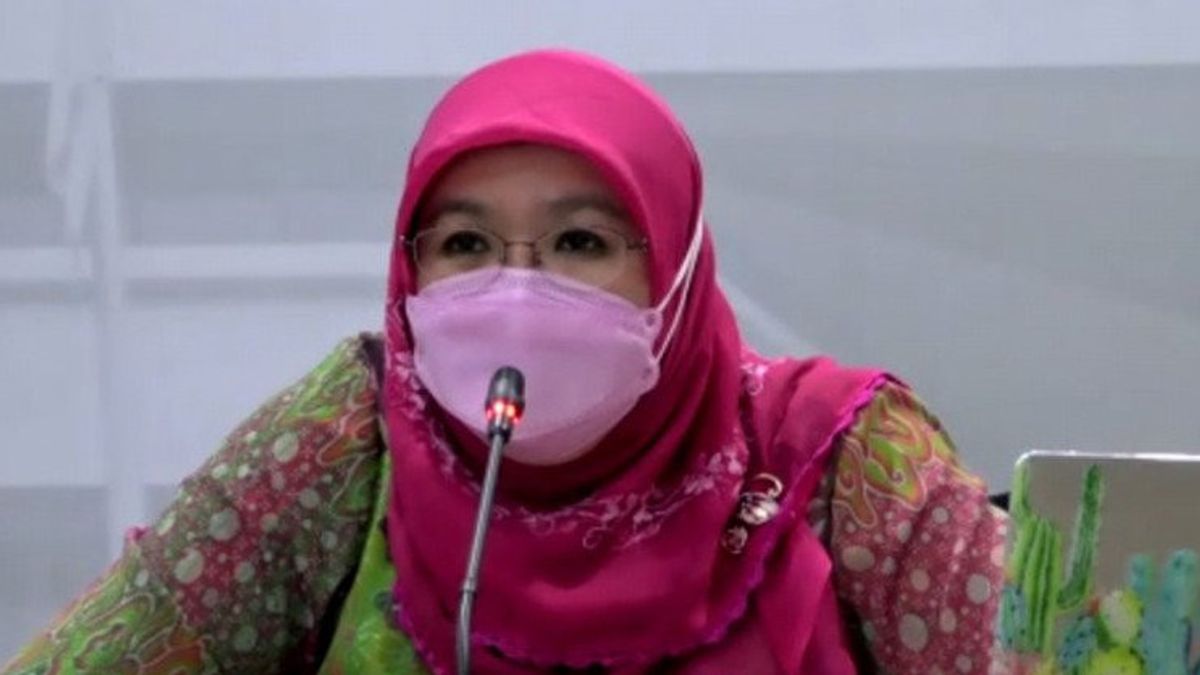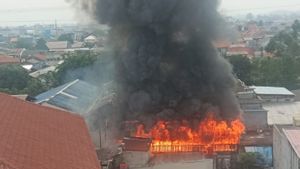JAKARTA - Spokesperson for the COVID-19 Vaccination Ministry of Health (Kemenkes) Siti Nadia Tarmizi said that of the acute hepatitis cases found in Indonesia, the majority came from DKI Jakarta.
“The most reported area is DKI Jakarta, that's probably because DKI Jakarta has the best detection. So if we look at him, he has the most (acute hepatitis cases)," said Nadia as reported by Antara, Friday, May 13.
Nadia said Indonesia currently has 18 suspected acute hepatitis. In detail, nine cases entered the "pending" criteria based on the classification of the World Health Organization (WHO) and were almost finished being examined, seven other suspects were confirmed not to have acute hepatitis and two other suspects were in the process of being examined.
Of the 18 suspected cases of acute hepatitis, two-thirds came from DKI Jakarta, then the rest came from West Sumatra, East Java, Bangka Belitung and East Kalimantan. All of these suspects are also known not to have hepatitis A, B, C or D variants.
Then of the seven deaths reported, two of them were not designated as acute hepatitis.
Nadia added, both the main cause and the development of acute hepatitis still need to be studied. Moreover, WHO itself categorizes the disease as probable because it is not yet known what type of virus is the cause of the mysterious disease.
"There is also a suspicion of viral hepatitis or Adenovirus that mutates like that, so we only know that it is most likely that so far, hepatitis is mostly transmitted through fecal-oral, fecal-oral through food," said Nadia.
Nadia appealed to everyone to prevent getting the disease through implementing health protocols and upholding a clean lifestyle, such as diligently washing hands, eating cooked food, drinking clean water.
Everyone must also wear a mask because it is suspected that transmission can occur through the air or droplets. Because, data from the UK found 92 percent of Adenovirus in children who suffer from acute hepatitis and cause complaints in the respiratory tract and digestive tract.
For parents, he asked to immediately take the children to the nearest health facility to complete immunization with hepatitis B vaccination as a form of anticipation that can provide protection to children.
Every family must also carry out stricter protection, especially for children who are under one year old and have not been able to take hepatitis vaccination or COVID-19 vaccination. diarrhea, abdominal pain, yellow eyes, brown urine and pale stools.
“The canteen that will be opened at the school must also ensure that the food managed is really clean and uses gloves for those who sell food. Make sure the food is food that was made with clean water," said Nadia.
The English, Chinese, Japanese, Arabic, and French versions are automatically generated by the AI. So there may still be inaccuracies in translating, please always see Indonesian as our main language. (system supported by DigitalSiber.id)













